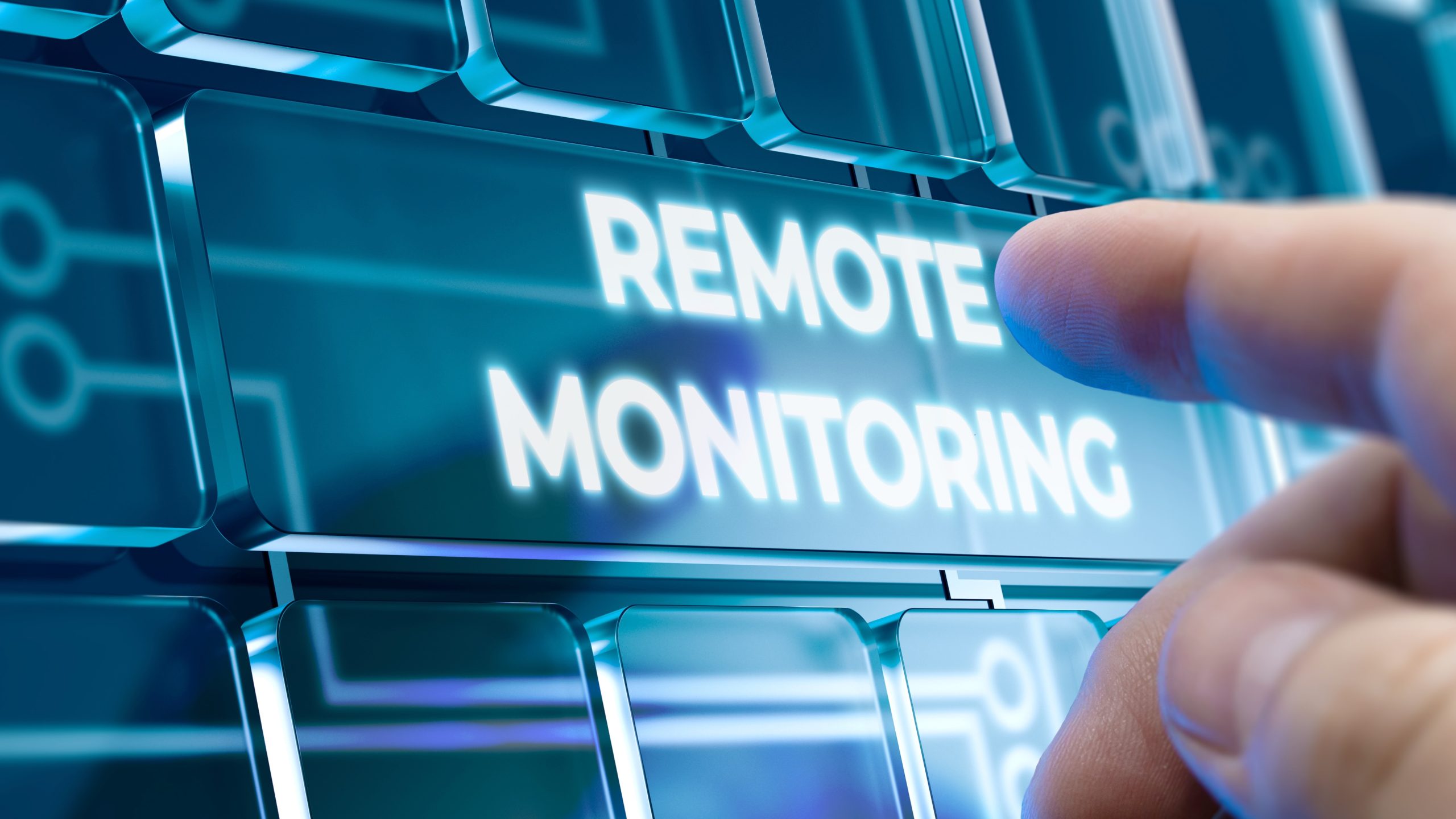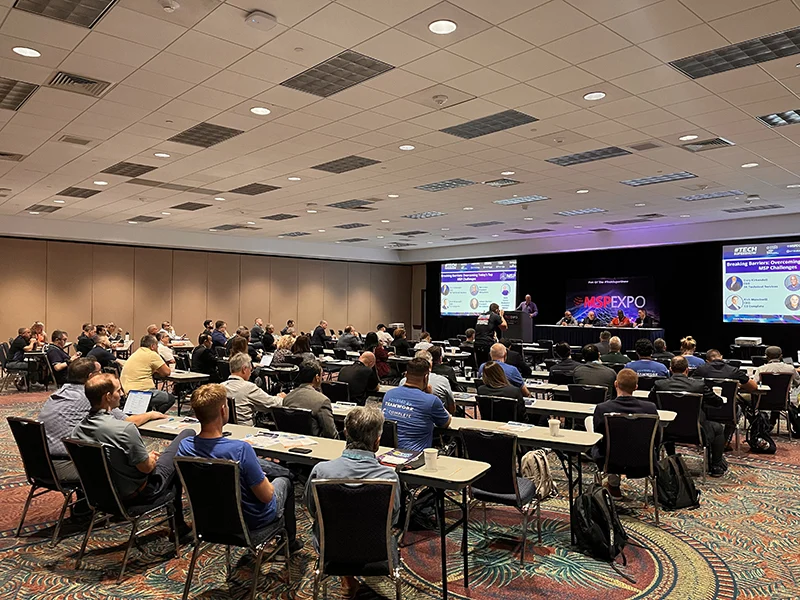FEW OF US have attended a face-to-face tech conference, IT community gathering, or peer group meeting lately, but most of us have fresh memories of them. Look around the room in your mind’s eye. Notice anything about the people you see? Chances are they bear a strong resemblance to one another—and perhaps to you as well.
Since its earliest days, in fact, one fundamental truth has defined the IT industry’s demographics. “”It’s been predominantly—and that’s like in capital letters—the domain of white males,”” says Carolyn April, senior director of industry analysis at IT membership organization CompTIA.
It remains so, too. According to the most authoritative data available on the topic, from the federal government’s Equal Employment Opportunity Commission, 68.5% of U.S. high-tech employees were white as of 2017 and 64% were male. By contrast, 7.4% were African-American, 8% were Hispanic, and 36% were female. Those figures trail well behind the private sector as a whole, which was 14.4% African-American, 13.9% Hispanic, and 48% female three years ago.
The story behind those numbers is a complex one. Understanding it, however, is where change for an industry badly in need of it must begin.
Surmountable Obstacles
Fundamentally, the issues responsible for IT’s lack of diversity fall into two buckets, which an economist might categorize as demand side and supply side. Demand-side problems concern the tendency among tech employers to fill open positions with yet more white males rather than women and people of color.
Some of the reasons behind that tendency, many observers stress, are understandable. For one thing, IT providers who serve SMBs are typically busy SMBs themselves with less time and money to invest in diversity efforts than giant organizations like Microsoft and Google, and no HR department to spearhead such initiatives. “”They’re just trying to make payroll and keep the lights on,”” April notes.
The smallest IT firms face an even steeper challenge, adds Tom Hopcroft, president and CEO of Mass Technology Leadership Council, an industry association dedicated to building an inclusive tech ecosystem in Massachusetts. Diversifying any company is hard, he says. “”If it’s kind of like a mom-and-pop IT consultancy, where it’s kind of a family business, it may be a little bit harder.””
That said, however, subtle and often unconscious issues that are surmountable contribute heavily to tech industry hiring imbalances as well. “”Successful diversity within an organization is bringing in the best people with the best ideas, and that often means looking outside your comfort zone,”” April observes. “”If you’re in an all-white, all-guy company, the people you interview or choose to interview for a job often tend to be people that look just like you, because that’s your comfort zone.””
Kim Mitchell, vice president of programming and operations at NPower, a nonprofit training provider that helps military veterans and young adults from underserved communities join the technology workforce, suggests watching for “”the mirroring effect”” to determine if your business has fallen into that trap.
“”If you look at your team and everyone looks like you and has the same experience and background as you, then maybe that’s a signal that you’ve not extended your lens to attract [diverse candidates], or even believe that someone with a different experience and profile can be successful,”” she says.
Mitchell recommends two actions to anyone who fears unrecognized preferences and preconceptions are influencing their staffing decisions: Face the issue, rather than deny its existence, and ditch the self-recrimination. Implicit bias is completely natural, she says. It only becomes a problem when people refuse to do anything about it.
“”They have to make a commitment that they’re willing to look inside of their own practices and assess whether or not it’s happening,”” Mitchell says.
Take a clear-eyed look around your office as well, Hopcroft suggests. Supposedly cutting-edge workplaces play a part in the tech industry’s diversity challenges too.
“”There’s such high demand for talent these days that companies are focused on making their place the best place possible to work,”” Hopcroft says. “”Since most of the people are white men, what great culture looks like to them is often beer on tap and foosball tables.”” The end result can be a frat house atmosphere that, “”if you’re a person of color or woman, may or may not be the most welcoming environment.””
Indeed, an unwelcoming culture more broadly is one of the reasons diversity lags in IT. “”You’re going to attract the values you reflect,”” Mitchell notes. Businesses that make equity and inclusion plainly visible priorities will inevitably draw more interest from minority candidates and women than those that don’t, and have an easier time retaining the applicants they hire.
Filling the Pipeline
If flawed hiring processes and non-inclusive cultures are the demand side of IT’s diversity problem, a shortage of trained job candidates from outside the white, male mainstream is the supply side. It’s also one small part of a wider issue: An often-discussed “”skills gap”” has long made finding applicants of any kind for open technology positions difficult, as Hopcroft can attest personally.
“”A decade ago, we put out a challenge to grow the tech sector here in Massachusetts by 100,000 net new jobs, and we figured out very early on that growing jobs wasn’t a challenge,”” he recalls. “”We had plenty of jobs. We just couldn’t fill them.””
Closing the skills gap with diverse candidates is even harder for small IT businesses bound by local hiring conditions than for large recruiters. “”They can draw from all over the country, relocate people, and pay for that relocation,”” April notes of the technology world’s name-brand businesses. “”Small companies can’t. The applicant pool is what it is.””
To make matters worse, both big and small tech employers often filter minority candidates out of that pool in advance by limiting searches to people with four-year degrees. “”That self-selects out a lot of Black and brown people who don’t complete college at the same rate as their white counterparts,”” Hopcroft observes.
It does nothing to improve hiring outcomes either, many experts contend, as there’s usually little correlation between a college diploma and the skills needed to succeed in many IT roles. NPower, Mitchell proudly notes, regularly imparts those skills to high-school graduates in as little as six months. “”Many employers are looking for that higher-ed credential, but in fact we’re able to provide, in a shorter time frame and in much greater supply, more candidates for those jobs,”” she says.
The issues that discourage people of color from pursuing careers in technology, however, begin years before training or apprenticeship programs enter the picture. “”We lose people at every step along the way,”” Hopcroft says. Underfunded grade schools in minority-heavy urban neighborhoods, for example, often lack the computer labs and robotics clubs found in whiter, more affluent districts, and their students typically don’t have a PC at home.
“”There’s a challenge if you haven’t even been exposed to computers that bleeds right into high school and college,”” Hopcroft says, noting that many urban children, and rural ones too, don’t have access to broadband either.
The obstacles that keep women out of technology start early as well, and affect girls at every income level. “”Girls in grade school and even up until middle school show the same amount of interest and aptitude around some of the science and technology concentrations as boys do,”” April says. “”Yet by the time they get to the cusp of high school, it becomes almost a social stigma.””
Amy Cliett, who is director of both the annual Women in Tech Summit event and TechGirlz, a CompTIA program that strives to get middle school girls interested in technology and tech-related careers, has witnessed that dynamic firsthand. Middle school, she notes, is when newly adolescent girls once drawn to computers start to become self-conscious about enthusiasms that stereotypes say they’re not supposed to have.
“”What happens typically is the girls tend to go into a shell, and if there are boys present then more times than not the boys will be the voices heard,”” Cliett says. Middle school, she continues, is also when girls start thinking about who they want to be when they grow up.
“”What they know is what’s around them,”” Cliett observes. “”If nobody in their family is a woman [who’s] in tech, then they don’t know that they can be that.”
TechGirlz tries to combat both hurdles by hosting interactive girls-only tech workshops led by industry professionals, community leaders, and fellow students. “”If you’re looking at this as a pipeline issue, we’re all the way up [top] filling the funnel,”” Cliett says. Along the way, she adds, the group shows girls that they’re not alone in loving computers and exposes them, often for the first time, to grown-up role models who work in IT.
“”We hear a lot from the girls that they were really surprised that this woman is high up at [a technology] company that they know,”” Cliett says.
More Yet to Do
Thanks to groups like TechGirlz and NPower, plus mounting pressure from activists and others, the IT industry is slowly making progress on diversity. According to CompTIA’s data, for example, 60% of high-tech businesses have an initiative aimed at recruiting and retaining diverse employees, and another 15% plan to add one. Sixty-nine percent either offer or plan to offer “”safe spaces”” for employees to discuss diversity issues, moreover, while 65% sponsor or participate in diversity events or say they’ll do so in the future.
Yet much more remains to be done, according to Mitchell, who encourages channel pros eager to chip in but unsure of where to start to try collaborating on diversity efforts with peers. “”Why does your one company have to figure it out on its own?”” she asks.
Cliett, for her part, suggests volunteering with pipeline-filling ventures likes TechGirlz—and calling out choices and behavior that discourage diversity wherever you see them.
“”I would say to everybody to work at their comfort level, but don’t expect change if you’re not willing to speak up,”” she says. “”It’s not comfortable to speak up, but if you’re silent, there’s nothing anybody can do, because nobody is going to know what’s going on.””
Resources
- Diversity in High Tech—A report from the Equal Employment Opportunity Commission eeoc.gov/special-report/diversity-high-tech
- Diversity in the High-Tech Industry—A research study from IT membership organization CompTIA comptia.org/content/research/diversity-in-the-high-tech-industry
- NPower—A training provider that helps military veterans and young adults from underserved communities join the technology workforce npower.org/
- TechGirlz—A CompTIA program that seeks to get middle school girls interested in technology and technology careers techgirlz.org/















